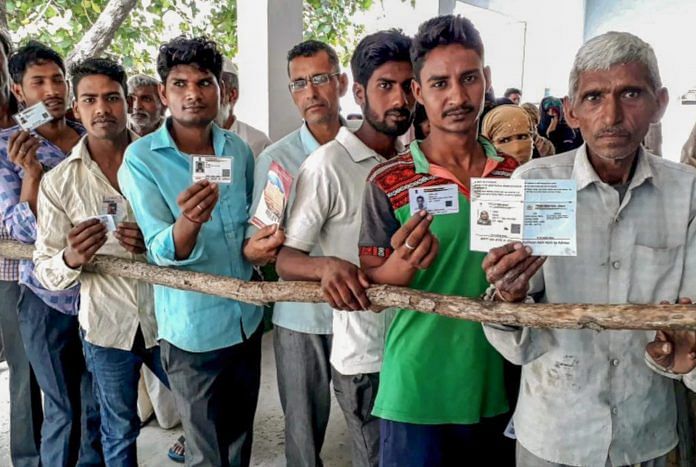Broader economic outcomes show that democratic processes act as immune system for economies, stopping diseases before they spread
We are at a fraught point in history, one where it seems that country after country wishes to turn its back on the messiness, moral ambiguity and confusion that decision-making in representative democracy entails. Books with titles such as “Why Liberalism Failed” and “The Death of the West” herald a new consensus — forged by the global financial crisis and the rise of the People’s Republic of China — that autocracies produce better economic outcomes than democracies.
As Russian President Vladimir Putin, the most self-aware and articulate of a new breed of strongman leaders, told the United Nations General Assembly in 2015, it now appears to many that “no one has to conform to a single development model that someone has once and for all recognized as the only right one.” By generating stability, illiberal regimes can in theory produce a more conducive environment for growth than their disorderly democratic counterparts can.
Let’s not pretend, however, that there’s anything especially new about Putin’s argument. Even in the early 1990s, at the height of the West’s history-is-dead triumphalism, questions were being raised about whether democracy was truly a more effective delivery mechanism for economic well-being. In 1994, Harvard economist Robert J. Barro wrote a famous paper arguing that, while democracy might help growth in countries that were mostly unfree, once a higher level of freedom was attained, “the overall effect of democracy on growth was weakly negative.”
Among economists and political scientists, this debate has only become more heated over time. Other economists, led by Daron Acemoglu at the Massachusetts Institute of Technology, have reexamined Barro’s question and found radically different answers. Institutionalists such as Acemoglu insist that the “right” political institutions create the conditions for growth. Others continue to argue that growth inevitably leads to pressures for democratisation.
When the data tell you two different things, you’re asking it the wrong question. Does democratisation raise a country’s gross domestic product? Perhaps, perhaps not. More likely, GDP is simply the wrong benchmark.
And, surely, it should be clear by now that voters worry about more than that single number at a particular point in time. They care about how growth is shared geographically. They care about its distribution across time, and across generations. Their notion of a “good” economic outcome for society isn’t straightforward or unidimensional. If tomorrow the best of all studies proved conclusively, once and for all, that democracies grew faster than autocracies, I doubt any minds would be changed.
The real question is whether democracy is better suited to assuaging citizens’ real worries — and meeting their aspirations — than autocracies are. And, in one very important sense, I’d argue that it is. Once you look at broader economic outcomes, you begin to see the democratic process as an economy’s immune system, stopping dangerous diseases before they spread.
Consider one unpalatable reality, painfully clear to anyone from India who visits China: Democracies can’t build infrastructure as quickly as authoritarian states. In China, if it’s decided that a highway is needed, then the organs of the state — from its shackled financial sector to its local satraps to its giant public-sector enterprises — press ahead and build the road.
In India, anyone from a local court to a prickly non-governmental organisation to a showboating provincial politician could stall that project at any time. Infrastructure takes years to build; voters can change their minds in months. And even if they don’t, the institutions of liberalism — set up to protect and amplify dissenting voices — might.
But infrastructure isn’t everything. The Soviet Union dug thousands of miles of canals, electrified a vast country and poured millions of tons of concrete — while writing ambiguous poems about it. It built the infrastructure of a superpower. It was also, indisputably, an economic failure. It failed to use the capital it extorted from its workforce efficiently or wisely.
Can we see that happening anywhere today? Of course we can. In China, a system that has normalised financial repression, workers have mortgaged their individual futures to pay for the hundreds of millions of tons of concrete poured in a few decades.
No democracy could match that; its citizens would demand a fair return on their savings. Equally, democracies abhor white elephants. Cavernously empty small-town airports, cozy public-sector monopolies, corrupt local officials — these are excesses that liberal institutions reveal and democratic processes strive to correct.
In an authoritarian system, you don’t even know when you’re being robbed. Democracies may grow slower at times. But at least they grow right. —Bloomberg



